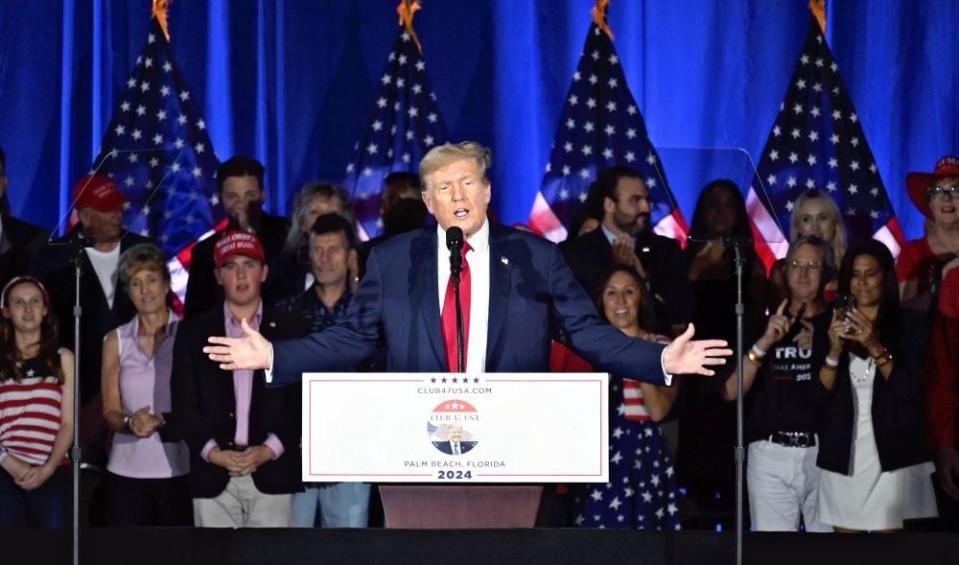Trump’s Proposal to End Taxes on Tips Could Cost $250 Billion: CRFB

Donald Trump’s proposal to exempt tips from being taxed as income would cost the federal government $150 billion to $250 billion over 10 years, according to an analysis released Sunday by the Committee for a Responsible Federal Budget.
At a campaign event in the key swing state of Nevada earlier this month, Trump told the crowd that if he’s reelected, he would stop taxing tips, claiming he would make the change “right away, first thing in office.”
Trump reportedly told Republican senators last week that he got the idea from a waitress in Las Vegas who complained about the IRS. “He would like to tell you that it was incredible research and policy discussion, but the secret is, he got it from a waitress,” Republican Sen. Kevin Cramer of North Dakota said, according to Roll Call.
Trump has since encouraged supporters to promote the idea — and his candidacy — by writing notes on restaurant receipts until the election.
Changing the taxation of tip income would require an act of Congress — and many Republicans have reportedly been receptive to the proposal, suggesting it should be under consideration as part of a 2025 tax overhaul. Some key Democrats have also expressed openness to the idea.
The new CRFB analysis notes that its cost estimate of up to $250 billion over a decade could be low once behavioral effects are incorporated. Those effects could be sizable, given the tax advantage the change would create for tips and the workers who rely on them. Employers and workers might respond by lowering wages and encouraging more tips. If tips increase by 10%, the 10-year cost could be as high as $275 billion, according to CRFB. A 50% increase in tips could bring lost federal revenue as high as $375 billion, while a 100% jump could result in a $500 billion hit to federal coffers.
“The big picture is clearly we have huge fiscal challenges for whoever the next president is, yet we seem to be seeing a number of proposals that would make the situation worse rather than better,” CRFB President Maya MacGuineas told CBS MoneyWatch. “Our politicians pander as their political strategy, which leaves the country so much weaker.”
The CRFB estimate also assumes that the individual tax cuts passed in 2017 are allowed to expire as scheduled after 2025. The fiscal impact of exempting tip income would be 10% to 15% lower if the 2017 tax cuts are extended, according to the CRFB analysis.
A warning against Trump’s proposal: Howard Gleckman, a senior fellow at the Urban-Brookings Tax Policy Center, writes that exempting tips from federal taxation would actually hurt many workers.
“Tax-free tips might help a relatively small number of waiters at high-end restaurants. And they could reward hotel owners such as Trump by slowing efforts to raise the minimum wage for tipped workers. But many tipped workers make so little income that they already pay little or no income tax,” Gleckman writes. “Trump’s idea also would create many new opportunities to game the tax system, which inevitably would result in new IRS regulations aimed at curbing tax avoidance. And a tax-exemption for tips violates every rule of tax equity. Why should a service worker avoid tax on tips while a warehouse employee earning exactly the same income must pay tax on wages?”
Gleckman says that eliminating taxes on tips could undercut the push to raise the minimum wage for tipped workers, hurting employees at lower-end restaurants. “Of course,” Gleckman adds, “by reducing the pressure to raise the minimum wage for tipped workers, ending taxes on tips would benefit owners of restaurants and hotels” — owners like the one who floated this idea.

 Yahoo Finance
Yahoo Finance